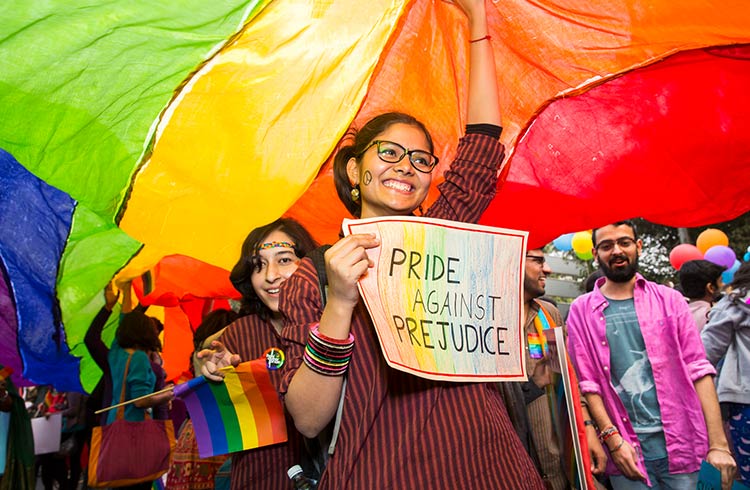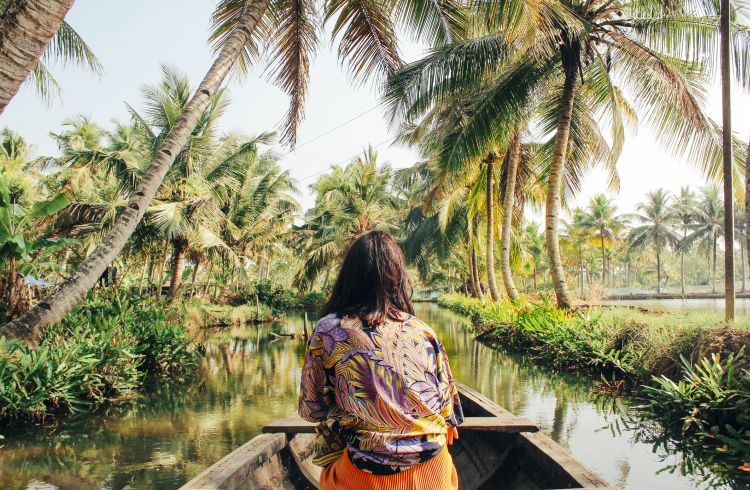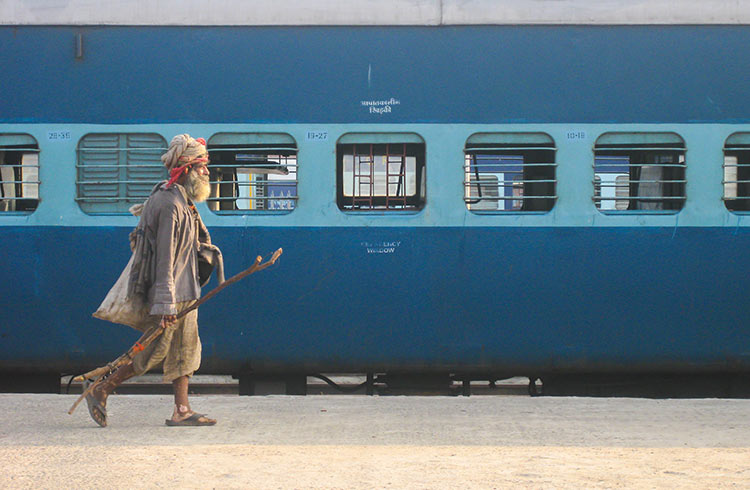LGBTQ+ Travel in India – What To Know Before You Go
Coronavirus (COVID-19) and travel: The situation around the world is changing dramatically. Various governments have changed their travel warnings to restrict travel during this time. To understand how this may impact cover under your policy, please go to our FAQs and select your country of residence.
For the latest travel warnings and alerts around the world, read about lockdowns and border restrictions.
India decriminalized homosexuality in 2018. So, how safe is it for LGBTQ+ travelers now? Keeping in mind it's a socially traditional country, our LGBTQ+ travel writer Ed Salvato shares a few tips.
Shares
 Photo © iStock/SoumenNath
Photo © iStock/SoumenNath
- Is India safe for LGBTQ+ travelers?
- The legal status of LGBTQ+ locals is complicated
- Local attitudes
- LGBTQ+travel safety tips
- A little modesty goes a long way
- Be cautious with dating apps
- Resources
Is India safe for LGBTQ+ travelers?
Through our own visits and those of the handful of LGBTQ+ tour operators who lead trips there, India is hospitable and welcoming to all visitors – including gay or lesbian couples or groups.
Some precautions need to be taken, but as for many countries with traditional societies, queer Western visitors also enjoy "tourist privilege," whereby the hosts overlook behaviors that may not be tolerated among their own countrymen.
The legal status of LGBTQ+ locals is complicated
In September 2018, homosexuality was made legal in India once again after it was criminalized in 2013 and previously decriminalized in 2009.
However, much to the surprise of the global LGBTQ+ community, transgender rights have improved in recent years with a ruling in 2014 granting legal recognition of a third gender in India (one of only a handful of countries with such a law). This has helped nudge acceptance of the mostly marginalized trans (Hijras) community.
The legal status of LGBTQ+ locals is complex, but visitors don't have to worry about this, as long as they behave according to local customs and to be mindful of interacting with and endangering locals.
Local attitudes
One aspect of local life that often surprises gay visitors to India is the open affection that Indian men display with other men. You will frequently see men walking arm-in-arm or hand-in-hand, or talking closely – and seemingly affectionately – to one another. They are not gay, nor in a relationship. But make no mistake: they are not displaying sexual affection for one another in a physical manner.
There are no "no-go" zones in India. All the spots that attract mainstream tourists are open and welcoming to LGBTQ+ guests, though it's always important (for all Western visitors) to be modest with respect to behavior.
LGBTQ+ travel safety tips
- LGBTQ+ visitors are advised against mistaking close physical intimacy among Indian men as a “green light” for public displays of affection with your same-sex partner. Travelers must note that all forms of public displays of affection – even among straight couples – are discouraged.
- Choose hotel accommodations at the 4 or 5-star level. You will be treated well, and your perceived sexuality will not be an issue among customer-facing hotel personnel.
- Of course, the global brands with properties in the sub-continent, including Four Seasons, Aman Resorts, Marriott, and others, are sensitive to the needs of their LGBTQ+ guests. What may come as a surprise is that luxury Indian hotel groups are actively seeking LGBTQ+business.
- We interviewed several gay tour operators including Bryan Herb from Zoom Vacations (listed as a resource below), Robert Sharp from Out Adventures, and Zach Moses from HE Travel, who have frequently traveled to India, and they all report feeling incredibly welcome.
A little modesty goes a long way
LGBTQ+ travelers to India will want to keep in mind that India is still a conservative country, and a general sense of modesty will serve you well. That said, tour operators who've brought many LGBTQ+ guests to India, report that being gay is simply a non-issue.
Still, it's advisable for same-sex guests (especially male guests) and heterosexual couples to avoid public displays of affection, particularly in rural locations which may be more conservative. Lesbian couples, especially those who present in a gender conforming way, can travel under the radar. Their concerns are more those of any female traveler: safety and fear of harassment.
Be cautious with dating apps
Dating and hook-up apps do exist in India, and if using one of these apps, one should use discretion and be careful – just like anywhere. For instance, do not meet at a private residence.
Always meet someone in a public place. Be sure to tell your hotel front desk, tour operator, or guide that you are meeting a local, and provide the public meeting place and time.
Resources
For any traveler, India can be a challenging country – especially for first timers. For LGBTQ+ travelers, there is a little more complex since homosexuality is technically illegal.
For these reasons we advise LGBTQ+ travelers to visit India on a guided group tour or, if traveling individually, to work with a trusted LGBTQ+ or LGBTQ+-friendly tour operator or travel agent.
We traveled with Zoom Vacations, which has led many successful tours to India.
Get a travel insurance quote for India
You can buy at home or while traveling, and claim online from anywhere in the world. With 150+ adventure activities covered and 24/7 emergency assistance.
Related articles
Simple and flexible travel insurance
You can buy at home or while traveling, and claim online from anywhere in the world. With 150+ adventure activities covered and 24/7 emergency assistance.
Get a quote

No Comments